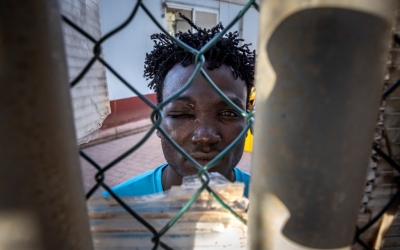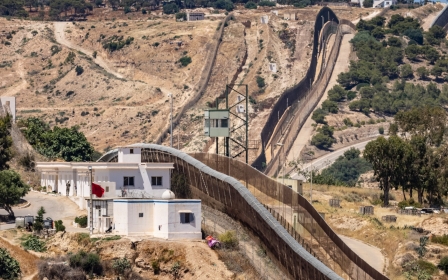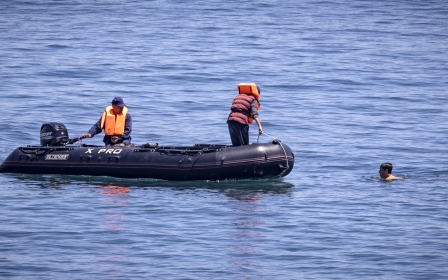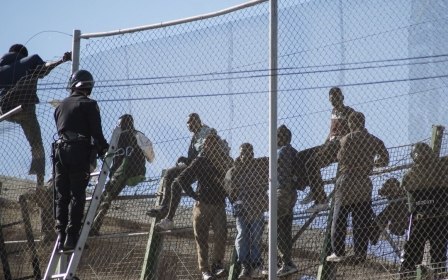Melilla migrant deaths: Morocco's sentencing of asylum seekers criticised as 'unjust'
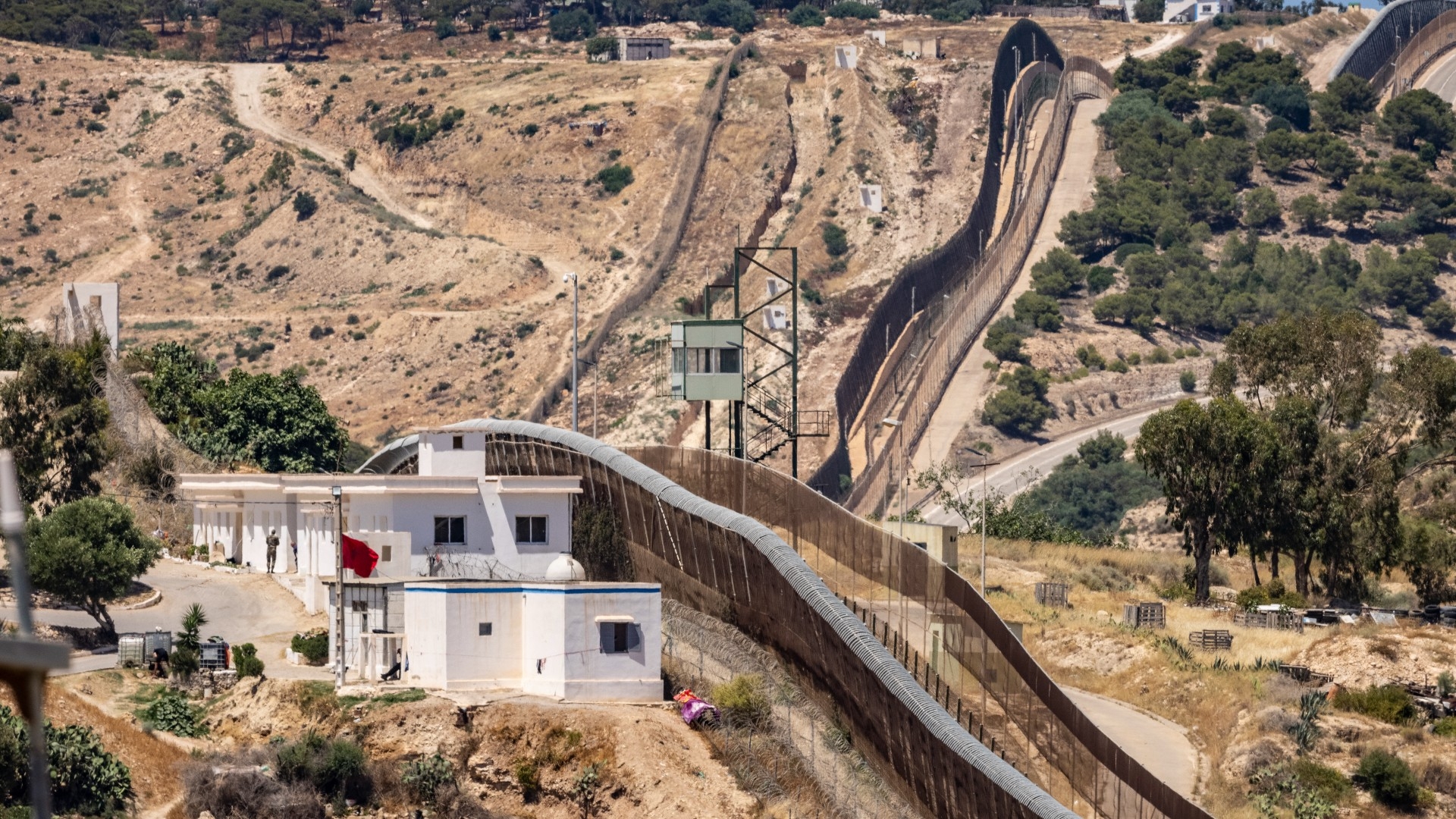
Morocco's decision to punish migrants over an attempted mass crossing into the Spanish enclave of Melilla was "unjust", a Rabat-based human rights group said on Saturday.
At least 23 migrants died and 77 went missing in June while trying to cross from Morocco to reach Spanish territory across one of the European Union's two land borders with Africa.
Around 2,000 people from sub-Saharan Africa, many of them Sudanese, stormed the frontier and were met with disproportionate violence from security forces, according to human rights groups. Countless others were wounded and police from both sides of the border were accused of deliberately refraining from helping them.
Morocco has since given dozens of refugees and migrants prison sentences of up to three years on charges of seeking to illegally enter Melilla and using violence against law enforcement officers.
New MEE newsletter: Jerusalem Dispatch
Sign up to get the latest insights and analysis on Israel-Palestine, alongside Turkey Unpacked and other MEE newsletters
"The sentences have been very severe and unjust," Souad Lazreg, a member of the Moroccan Association for Human Rights (AMDH), said on Saturday.
One of the lawyers representing some of the migrants, Khalid Ameza, said court documents "include confessions that they have denied throughout the legal process".
"Despite that, they were given very severe sentences," AFP reported the lawyer as saying.
The verdicts lacked "logical and convincing arguments" to support them, he added.
Even as Moroccan authorities charged protesters with violence against security forces or vandalism of public property, in some cases "the law enforcement personnel questioned had not identified" any particular individual specifically, said Ameza.
Criticism of the Moroccan sentences comes a day after Spanish authorities closed an investigation into the incident.
The public prosecutor's office in Spain said investigators had found no evidence of criminal wrongdoing by Spanish security forces.
"We cannot conclude that the actions of the security forces increased the risk to the life and physical integrity of the migrants, so they cannot be charged with reckless homicide," it said in a statement.
Spanish authorities concluded that migrants had acted in a "hostile and violent" manner towards both Moroccan and Spanish security forces.
"None of them were aware of the crush that happened" at the fence "nor of its fatal consequences, so at no time did they know there were people in danger who needed help", it said.
'Prolonged and excessive force'
Amnesty International, which put the number of deaths from the incident at 37, refuted claims that security forces had no role in the deaths.
The London-based human rights group said in a report earlier this month that "the methods used by Moroccan and Spanish authorities at the border... contributed to the deaths of at least 37 people".
It added that migrants "were met with prolonged and excessive use of force by Moroccan and Spanish security officials, and many were left lying injured on the floor inside a fenced-off enclosure for hours".
"Neither Morocco nor Spain have conducted independent and impartial investigations, and no one has been brought to justice for these grave human rights violations," added Amnesty International.
'The methods used by Moroccan and Spanish authorities at the border... contributed to the deaths of at least 37 people'
- Amnesty International
Melilla and Ceuta, Spain's other tiny North African enclave, are the European Union's only land borders in Africa, which makes them a target for people hoping to cross into Europe from the African continent.
Melilla first fell under Spanish rule in 1497 and Ceuta in 1668 after Portugal gave it to Spain under the Treaty of Lisbon.
But once Morocco gained its independence in 1956 after decades of rule by the French and Spanish, Spain refused to include Melilla and Ceuta as Moroccan territories.
Since 1995, both port cities have had limited self-governance as autonomous regions.
Spain refuses to discuss returning the enclaves to Morocco. It claims that the cities are integral to the country and have been for the past five decades.
But the enclaves have been increasingly criticised by human rights agencies because of the strict border policy and reports of excessive use of force from officers at the fences.
Middle East Eye delivers independent and unrivalled coverage and analysis of the Middle East, North Africa and beyond. To learn more about republishing this content and the associated fees, please fill out this form. More about MEE can be found here.


